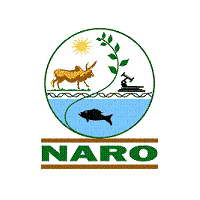Partners - Research Partners, Tropical Crops & Sustainable Production
Tropical Crops and Sustainable Production
Of the forty-two officially recognised Developed Countries, Australia is the only one in the tropical region and thus the only Developed Country with tropical agriculture industries. The majority of Australia's tropical crops are produced in Queensland. As a result, Queensland has developed in its diverse research agencies and institutions, world leading expertise and capability in the field of tropical crop science, and with that, like other Developed Countries, excellence in and commitment to the principles and practices of sustainable production. QUT is at the forefront in this research and a significant contribution is made to improving tropical agriculture not only in Australia, but in Developing Countries in Africa, India and South-East Asia.
QUT research in Tropical Crops and Sustainable Production embraces a range of tropical crops, the most significant being banana and sugarcane. The research includes genetic manipulation for improving nutritional status of food, disease resistance and stress tolerance of tropical crops. Development of advanced techniques for disease diagnosis and control are another feature of the research program. Research is also conducted in diversifying the product base, and therefore the sustainability of the sugarcane industry, by developing ways to manufacture high-value green chemicals and ethanol from the by-products of sugar production.
National Agricultural Research Organisation (NARO)
 The National Agricultural Research Organization (NARO) was originally established by a Statute of The National Resistance Council (1992) as a semi-autonomous body for guiding and coordinating all agricultural research activities Uganda. The institution was reconstituted under the same name by the National Agricultural Research System Act (NAR Act) of 2005. The mission of NARO is "to generate and disseminate appropriate, safe and cost effective technologies, while enhancing the natural resource base." The organization comprises of the council as its governing body, committees of the council as its specialized organs, a secretariat for its day-to-day operations with semi-autonomous public agricultural research institutes under its policy guidance. The NARS Act (2005) provided for the development of an agricultural system for the purpose of improving agricultural research service delivery, financing and management. This resulted in creation of 14 semi-autonomous institutes that are growing into centers of excellence in research in specified areas. One such institute is the National Crop Resources Research Institute (NaCRRI) which is mandated to carry out research on crops namely; Banana, Beans, Cassava, Cereals, Sweet potatoes, Beverage (Coffee, Cocoa, Tea) and Oil tree crops (Oil palm).
The National Agricultural Research Organization (NARO) was originally established by a Statute of The National Resistance Council (1992) as a semi-autonomous body for guiding and coordinating all agricultural research activities Uganda. The institution was reconstituted under the same name by the National Agricultural Research System Act (NAR Act) of 2005. The mission of NARO is "to generate and disseminate appropriate, safe and cost effective technologies, while enhancing the natural resource base." The organization comprises of the council as its governing body, committees of the council as its specialized organs, a secretariat for its day-to-day operations with semi-autonomous public agricultural research institutes under its policy guidance. The NARS Act (2005) provided for the development of an agricultural system for the purpose of improving agricultural research service delivery, financing and management. This resulted in creation of 14 semi-autonomous institutes that are growing into centers of excellence in research in specified areas. One such institute is the National Crop Resources Research Institute (NaCRRI) which is mandated to carry out research on crops namely; Banana, Beans, Cassava, Cereals, Sweet potatoes, Beverage (Coffee, Cocoa, Tea) and Oil tree crops (Oil palm).
National Banana Research Programme (NBRP)
The National Banana Research Programme (NBRP) is a Programme of NaCRRI, mandated to carry out research on bananas in Uganda. Its goal is to enhance banana productivity and utilization through development and promotion of technologies that so as to partly address the nutrition and income needs of communities that depend heavily on the banana. Banana 21 is one of the seven projects that make up the NBRP.
